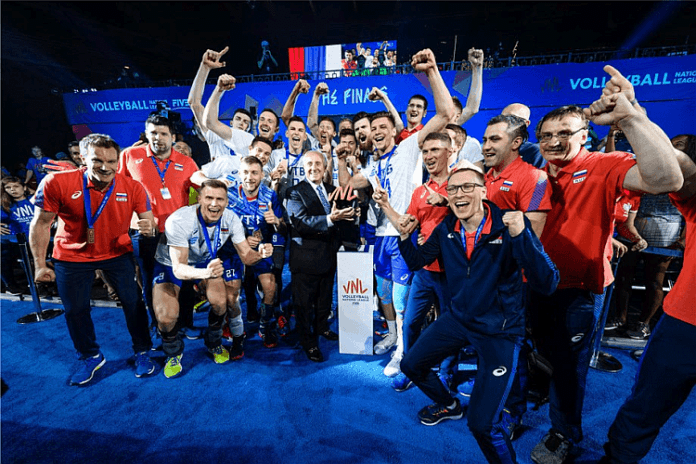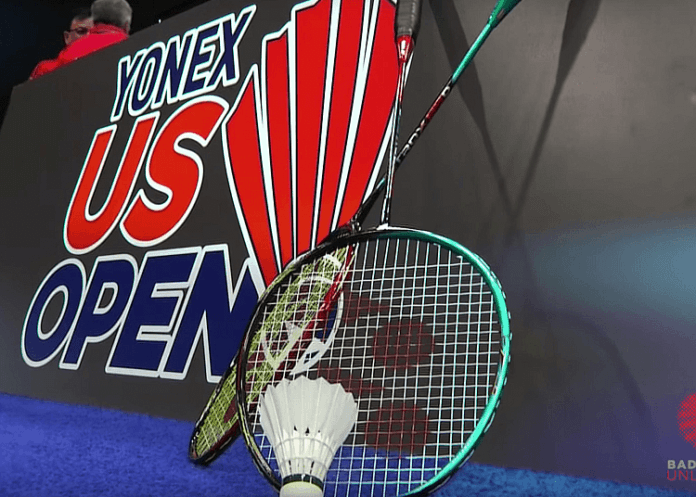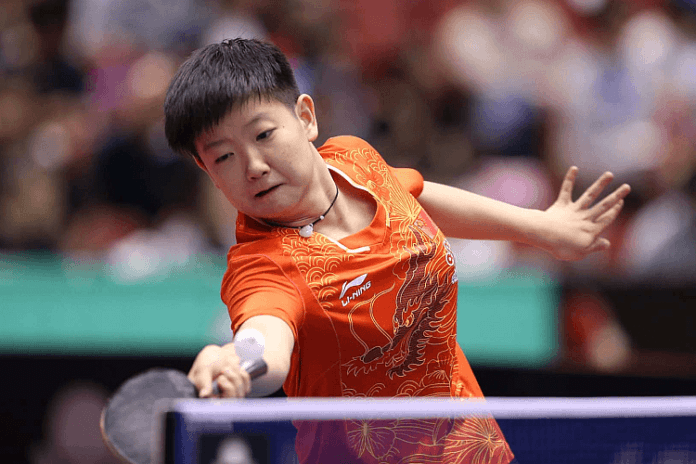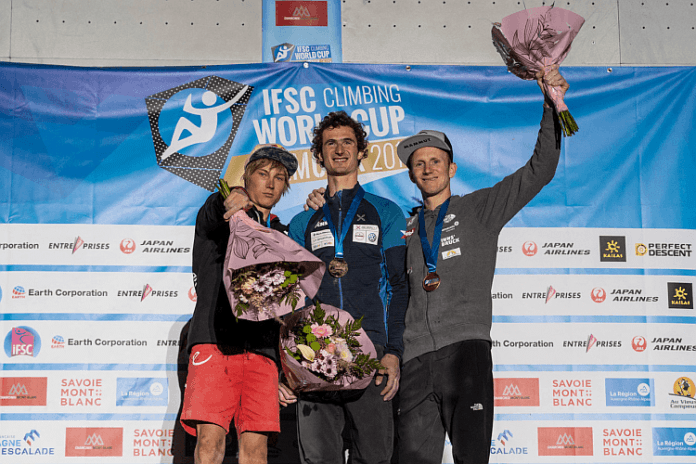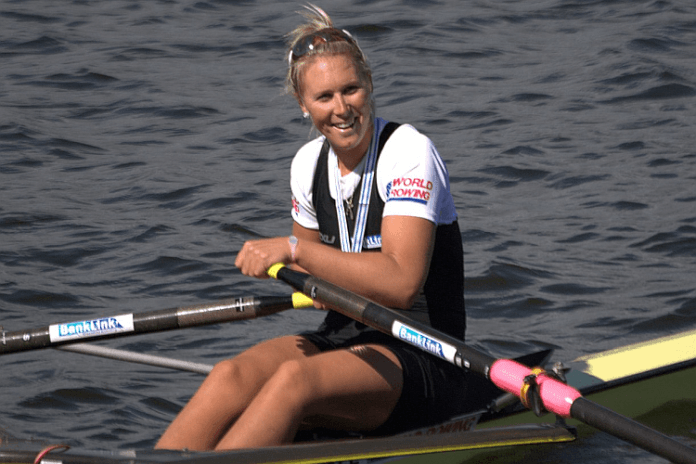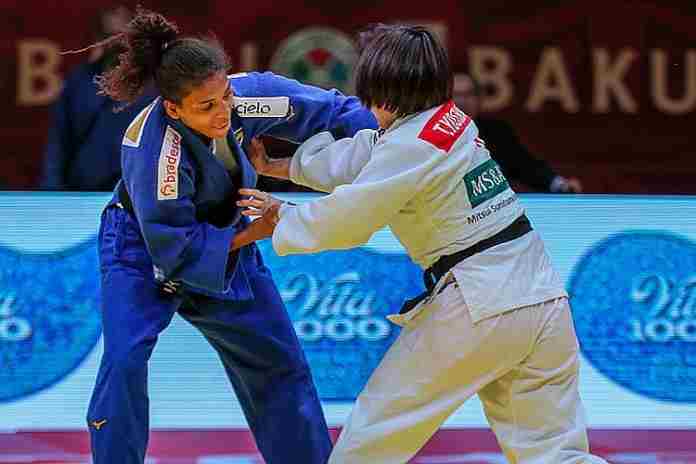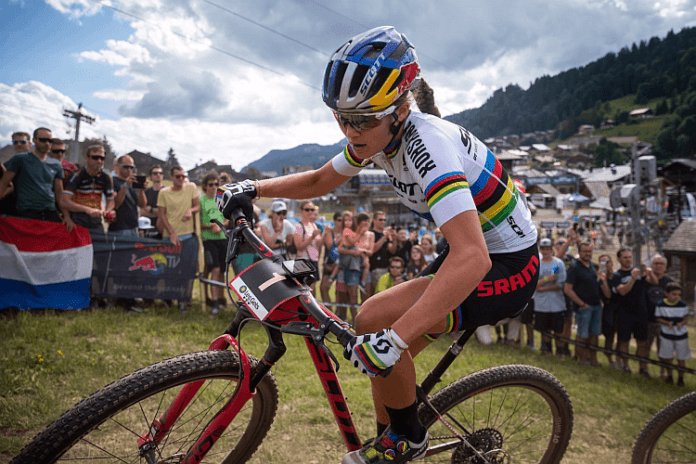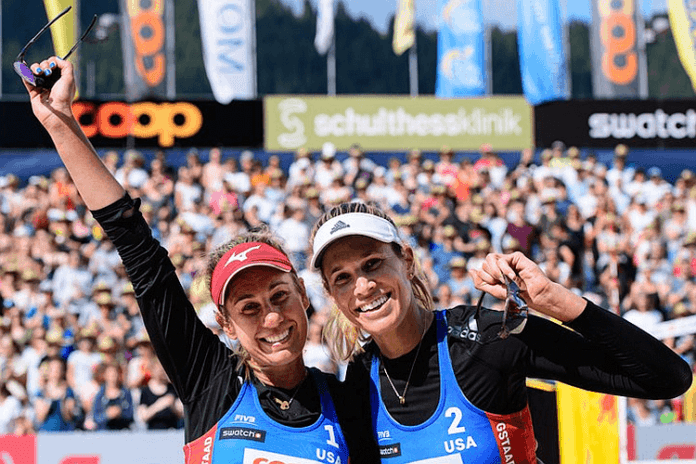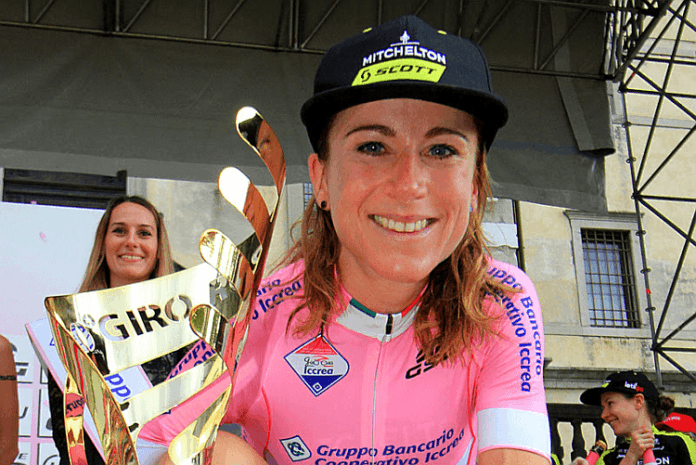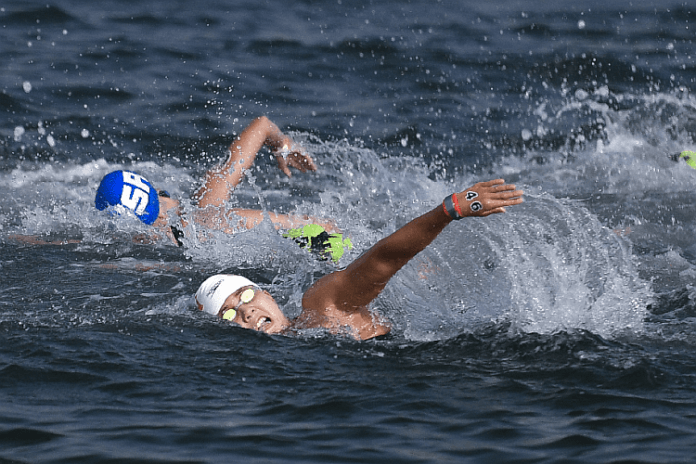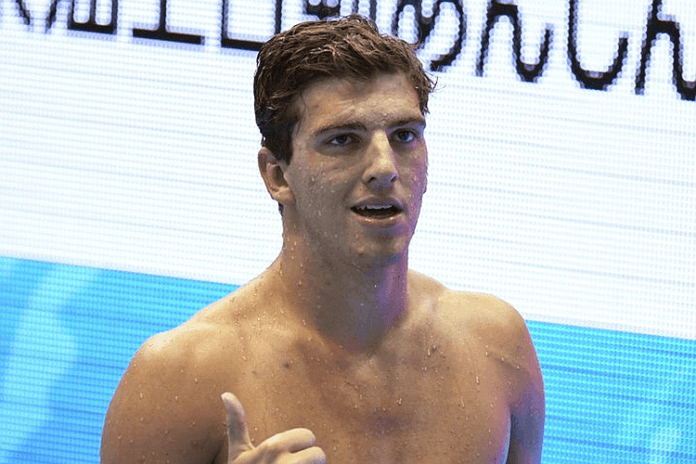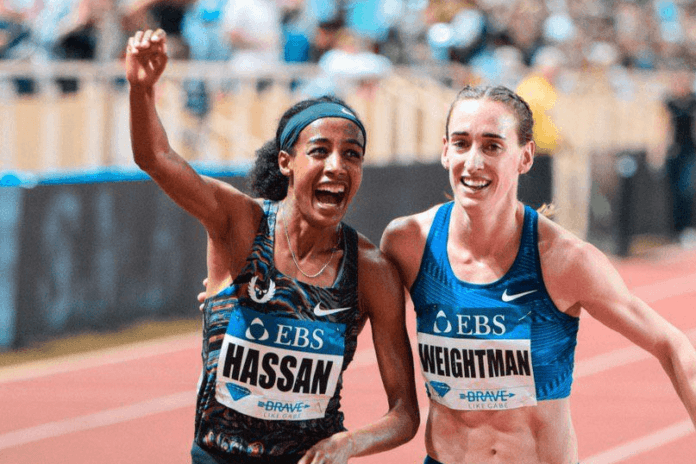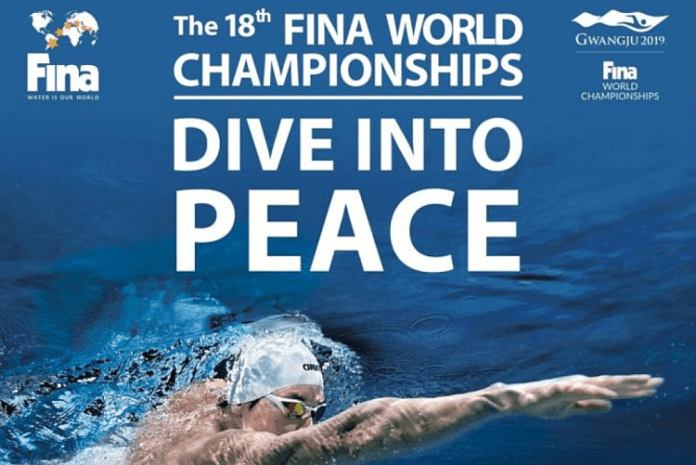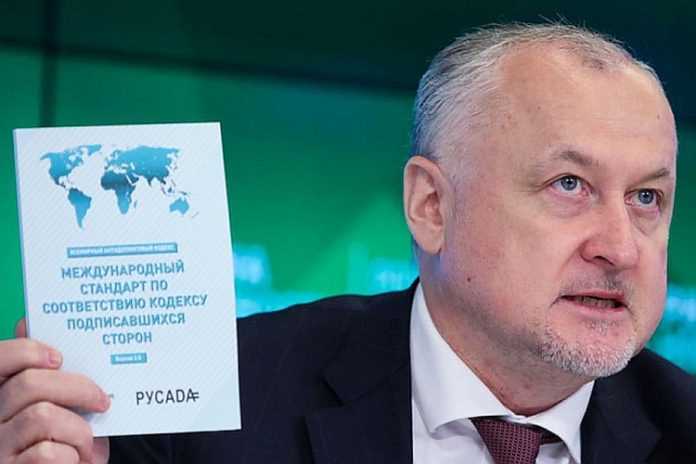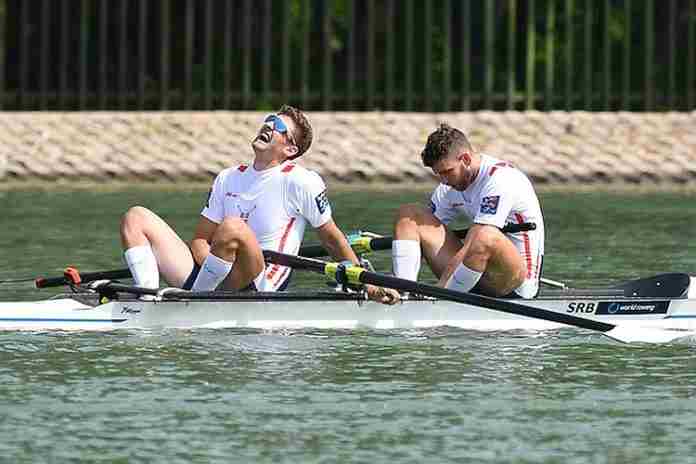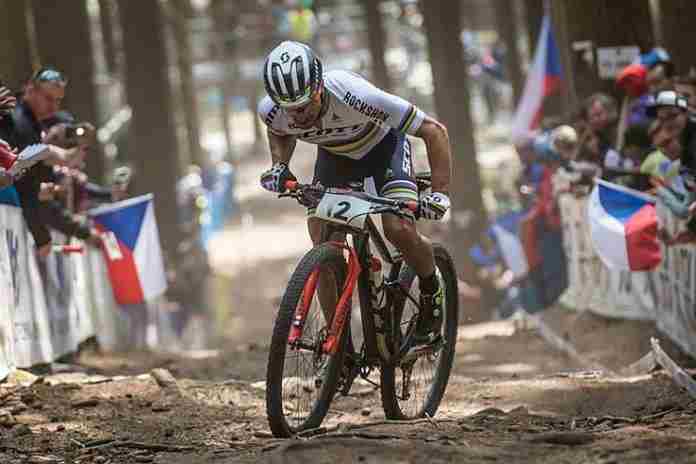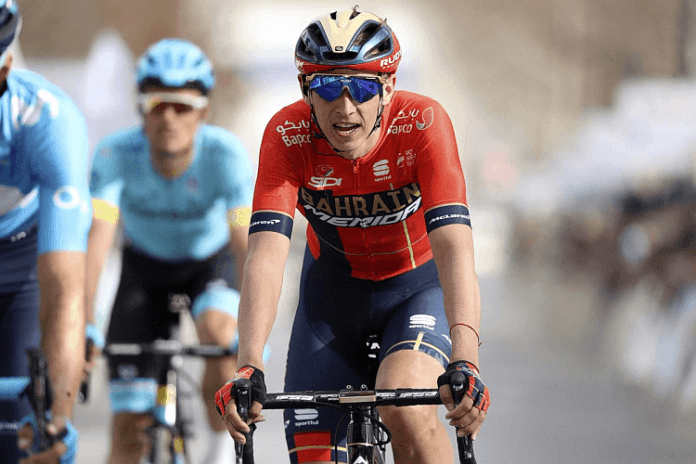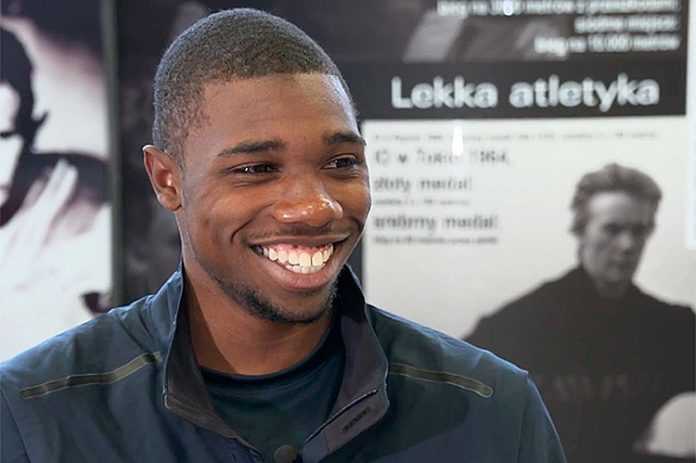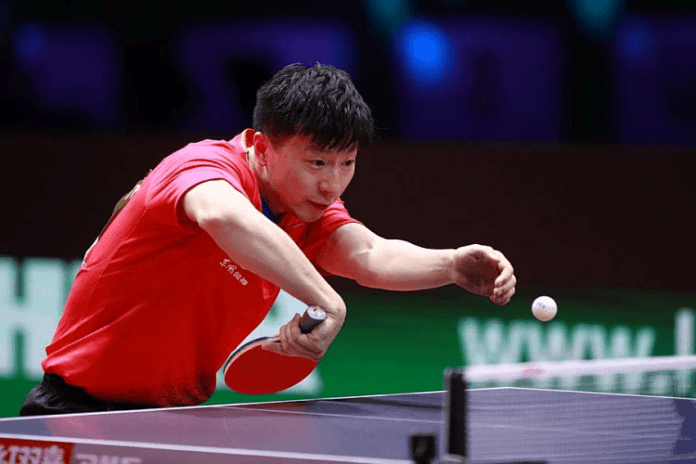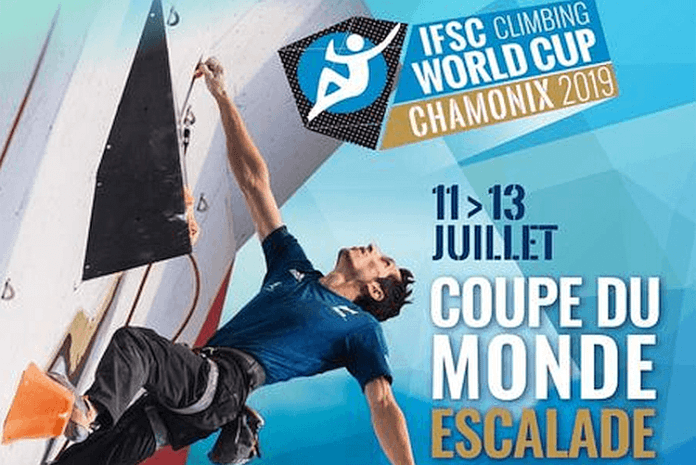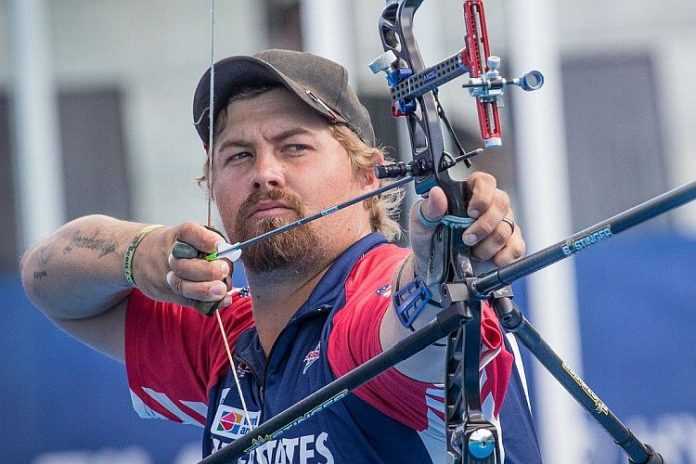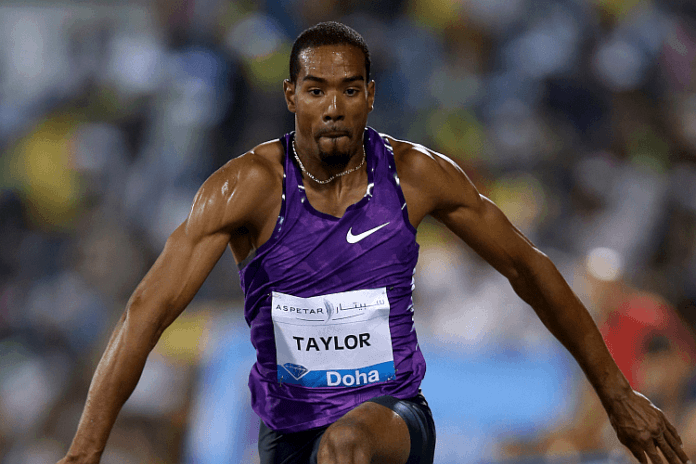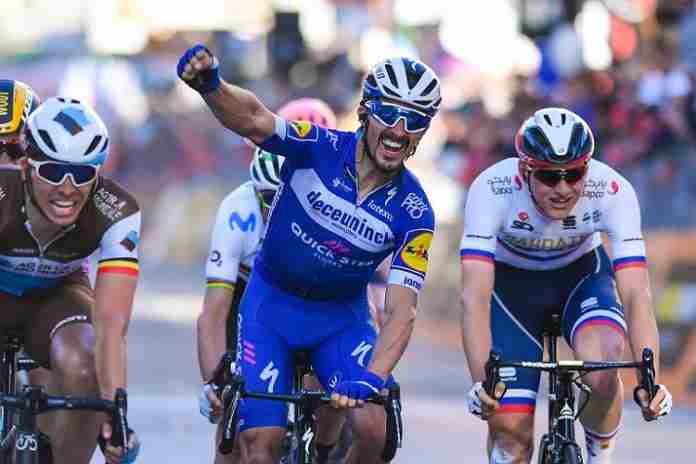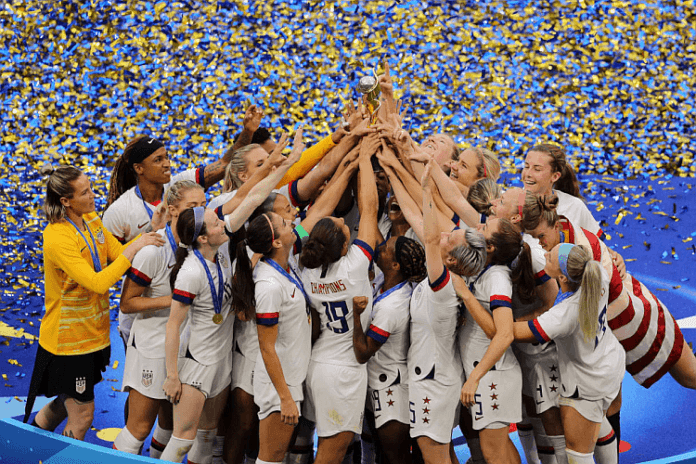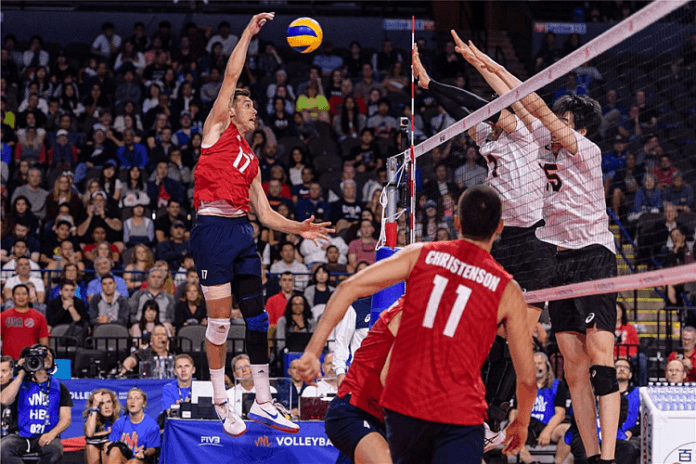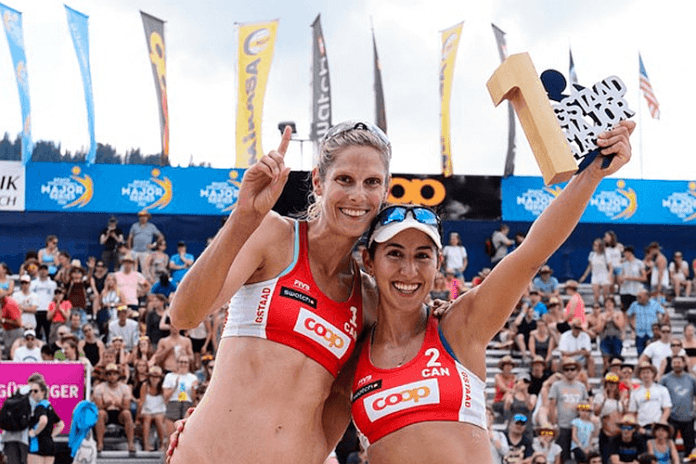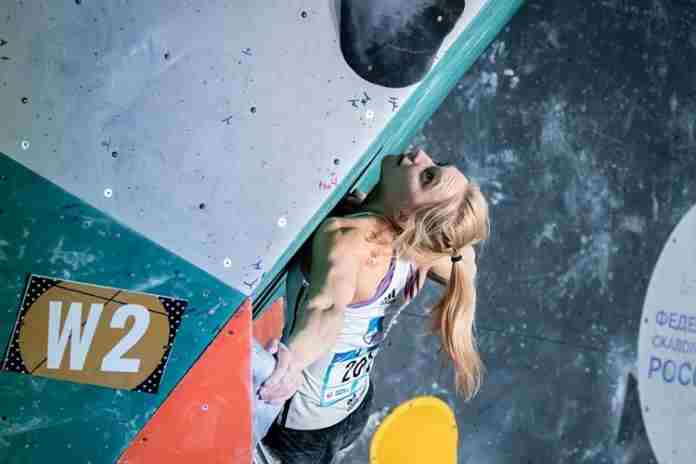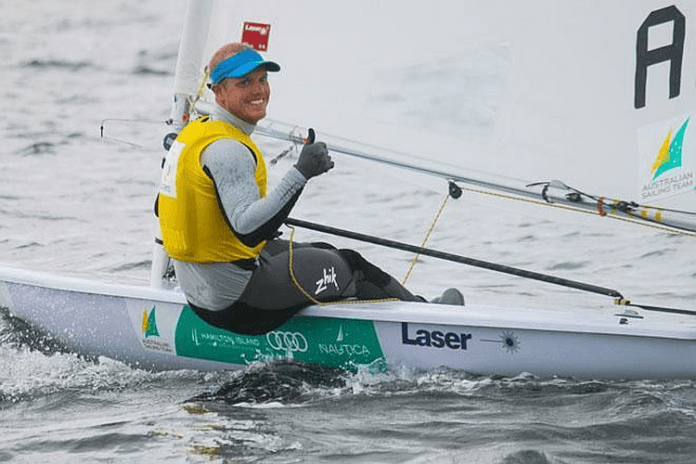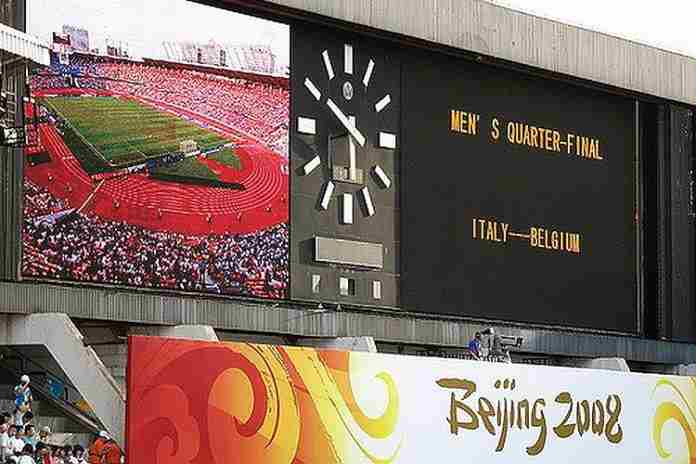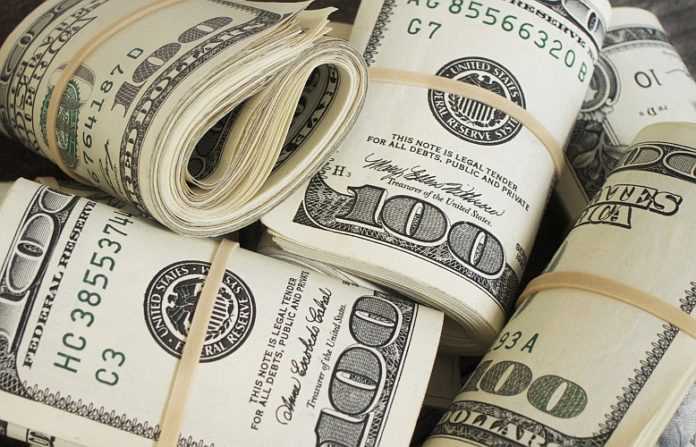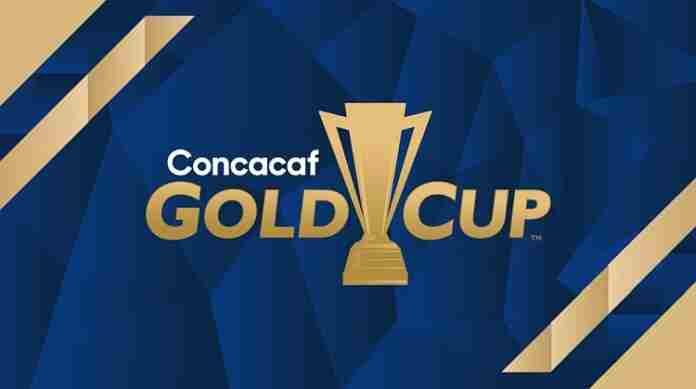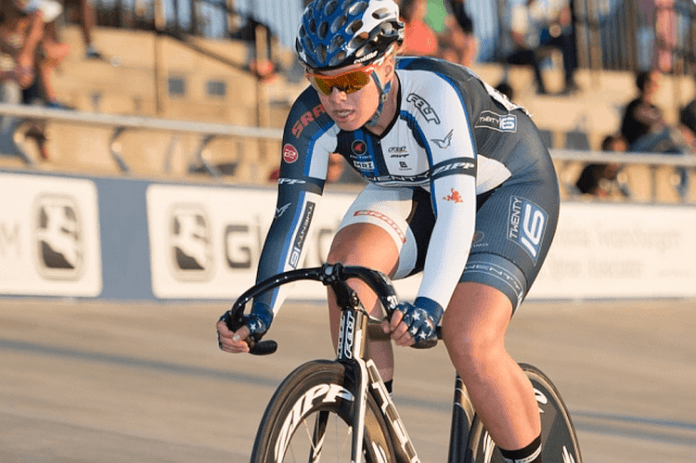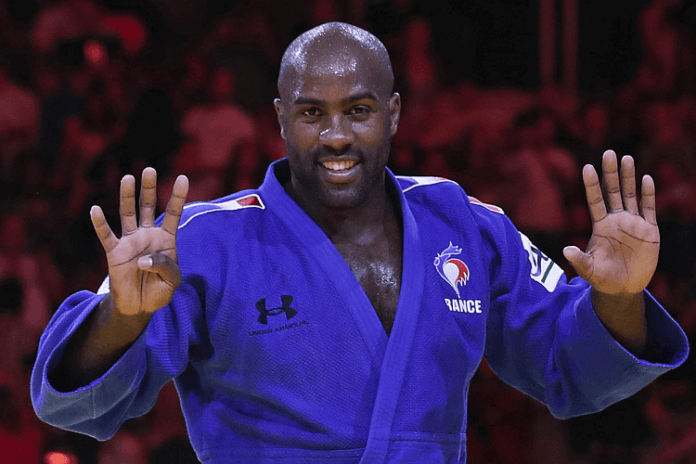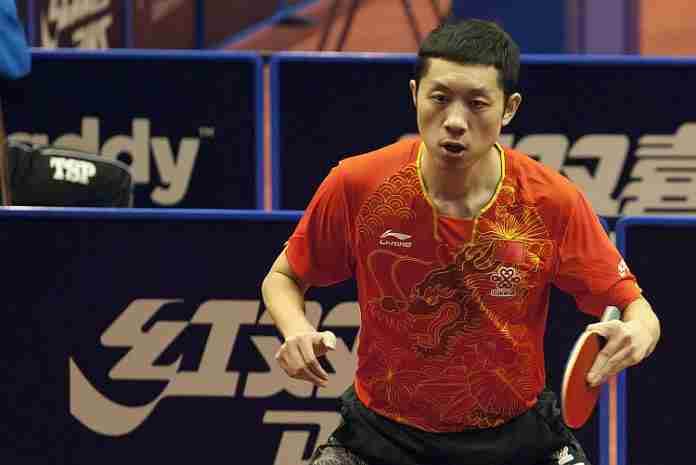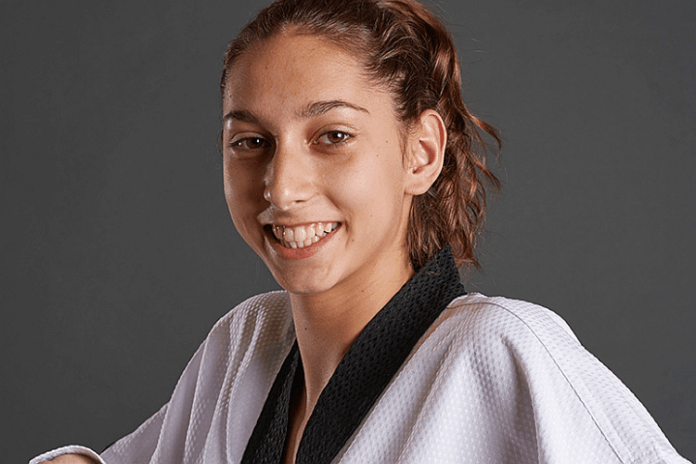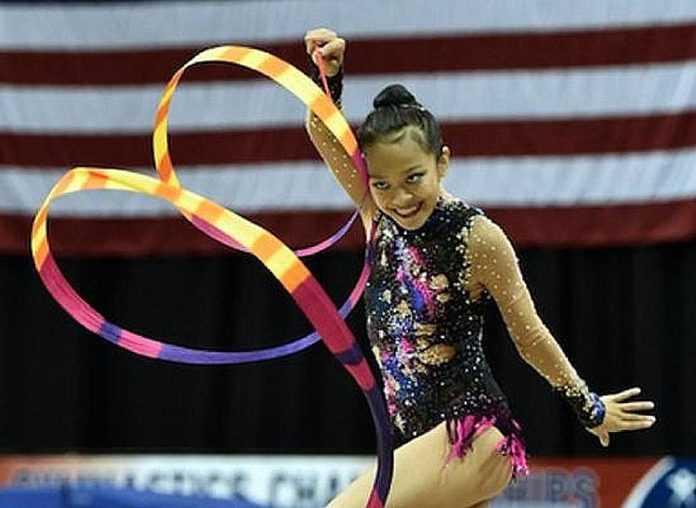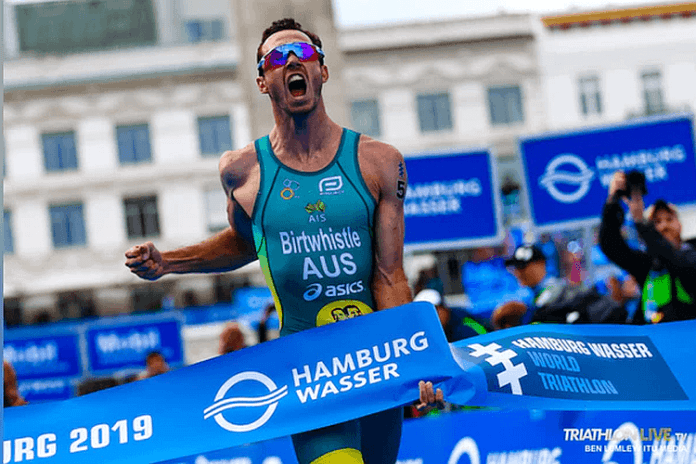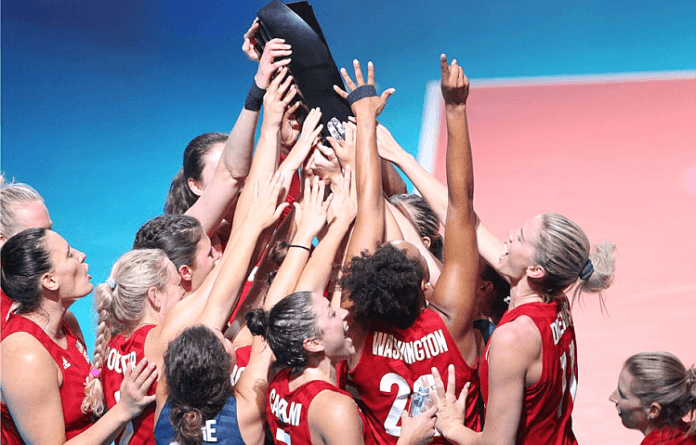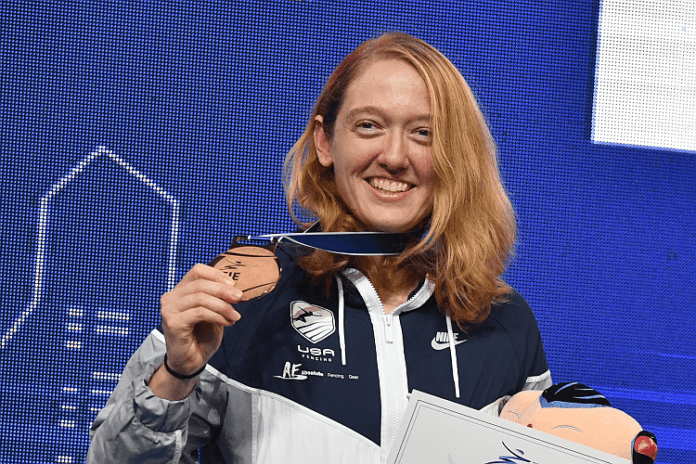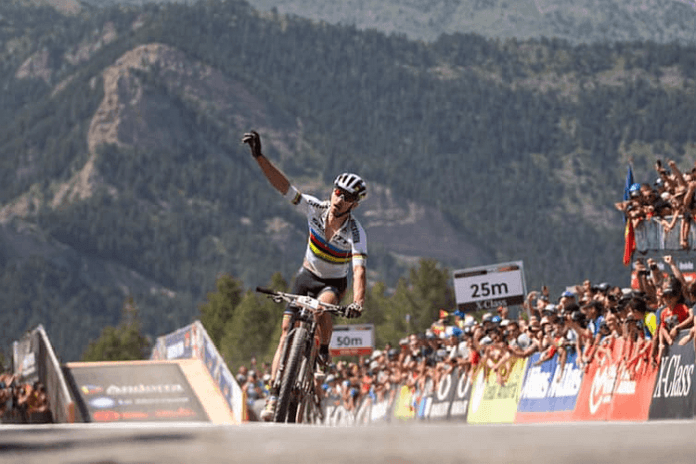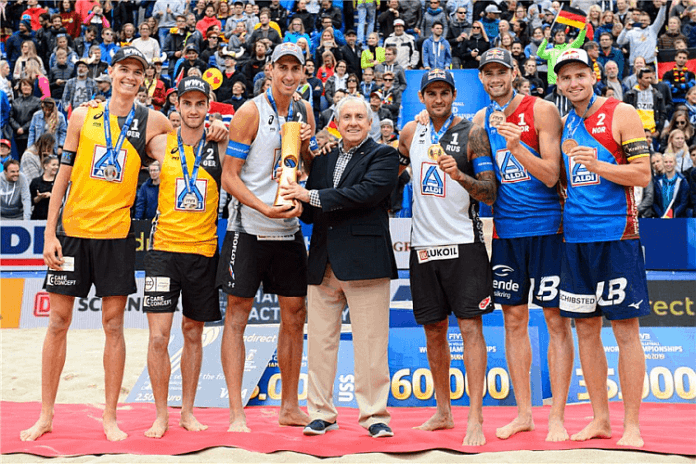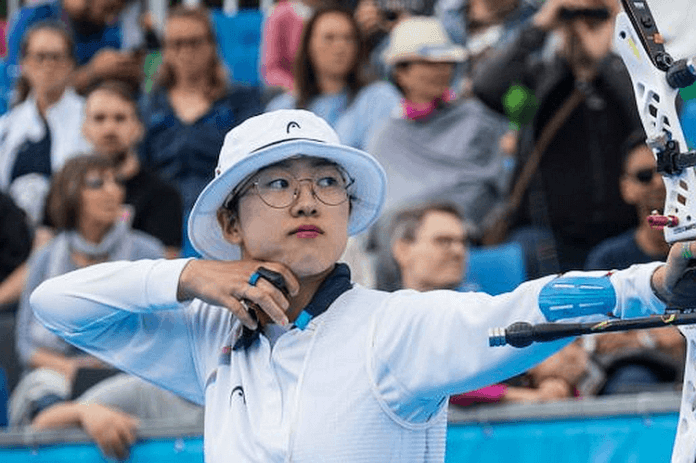“There was no strategy or ‘key’ to today’s race for me.”
Maybe not, but Germany’s Florian Wellbrock was determined not to let the 10 km open-water World Championships race in Gwangju (KOR) get away from him and he stayed near the front, or at the front almost the entire way, and when the time for the final 200 m sprint came, he was right where he wanted to be: first.
Now 21, he won a tight finish with France’s Marc-Antoine Olivier, 1:47:55.90-1:47:56.10 for his first World Championships medal in open-water events, with six more swimmers finishing in the next five seconds. Wellbrock’s training partner, Rob Muffels (GER) finished third, with American Jordan Wilimovsky in fifth as the top 10 all qualified for the 2020 Games in Tokyo.
Said Olivier, “I am really happy with today’s results although I am a little disgusted because I got blocked at the finish. It was really a very difficult race … we have rarely had races like this.”
The finishes gave the U.S. three qualifiers for Tokyo, as Haley Anderson (silver) and Ashley Twichell (sixth) qualified in the women’s 10 km race. These are the only Olympic events on the Worlds program, but the women’s 5 km and men’s and women’s 25 km races are still to come in Korea.
The competitions in Diving and Artistic Swimming followed a familiar pattern. In Diving, China wins. In Artistic Swimming, Russia wins.
In the Diving, the Chinese have now won all eight events, with an average margin of victory of an astonishing 29.44 points:
● 20.10 ~ Men/1 m Springboard: Zongyuan Wang
● 24.72 ~ Men/3 m Synchro: Siyi Xie/Yuan Cao
● 42.33 ~ Men/10 m Synchro: Yuan Cao/Aisen Chen
● 23.45 ~ Women/1 m Springboard: Yiwen Chen
● 30.90 ~ Women/3 m Synchro: Han Wang/Tingmao Shi
● 32.52 ~ Women/10 m Synchro: Jiaqi Zhang/Wei Lu
● 34.86 ~ Mixed/10 m Synchro: Junjie Lian/Yajie Si
● 26.60 ~ Mixed/3 m+10 m: Shan Lin/Jian Yang
Only the individual 3 m and 10 m and the Mixed 3 m Synchro events remain and the Chinese are favored in all five. China won 8/13 events in 2017, 10/13 in 2015, 9/10 in 2013 and swept all 10 events in 2011.
In Artistic Swimming, Russia did not contest the Team Highlight event, won by Ukraine, but has won the other four events handily and is favored in the Solo Free, Duet Free, Team Free and Mixed Duet Free still to come. Summaries so far:
FINA World Aquatics Championships
Gwangju (KOR) ~ 12-28 July 2019
(Full results here)
ARTISTIC SWIMMING
Solo Technical: 1. Svetlana Kolesnichenko (RUS), 95.0023; 2. Ona Carbonell (ESP), 92.5002; 3. Yukiko Inui (JPN), 92.3084; 4. Marta Fiedina (UKR), 91.3014; 5. Jacqueline Simoneau (CAN), 89.2932; 6. Linda Cerruti (ITA), 88.0378; 7. Evangelia Platanioti (GRE), 86.2921; 8. Vasiliki Alexandri (AUT), 85.6098.
Duet Technical: 1. Svetlana Romashina/Svetlana Kolesnichenko (RUS), 95.9010; 2. Wenyan Sun/Xuechen Huang (CHN), 94.0072; 3. Anastasiya Savchuk/Marta Fiedina (UKR), 92.5847; 4. Megumu Yoshida/Yukiko Inui (JPN), 92.116; 5. Linda Cerutti/Costanza Ferro (ITA), 90.1743; 6. Jacqueline Simoneau/Claudia Holzner (CAN), 88.8659; 7. Paula Ramirez/Sara Saldana Lopez (ESP), 87.2960; 8. Eirini Alexandri/Anna-Maria Alexandri (AUT), 87.0654. Also: 12. Ruby Remati/Anita Alvarez (USA), 84.0190.
Team Technical: 1. Russia, 96.9426; 2. China, 95.1543; 3. Ukraine, 93.4514; 4. Japan, 92.7207; 5. Italy, 91.0411; 6. Spain, 90.2506; 7. Canada, 89.4990; 8. Greece, 87.0863. Also: 11. United States, 84.0566.
Team Highlight: 1. Ukraine, 94.5000; 2. Italy. 91.7333; 3. Spain, 91.1333; 4. Canada, 89.3333; 5. France, 87.2000; 6. Israel, 83.7000 7. Hungary. 77.5667; 8. Thailand, 71.1333.
Mixed Duet Technical: 1. Mayya Gurbanberdieva/Aleksandr Maltsev (RUS), 92.0749; 2. Manila Flamini/Giorgio Minisini (ITA), 90.8511; 3. Atsushi Abe/Yumi Adachi (JPN), 88.5113; 4. Bill May/Natalia Vega Figueroa (USA), 86.9235; 5. Haoyu Shi/Yayi Zhang (CHN), 85.5881; 6. Pau Ribes/Emma Garcia (ESP), 84.4015; 7. Renan Souza/Giovana Stephan (BRA), 79.4495; 8. Jennifer Cerquera Hatiusca/Gustavo Sanchez (COL), 77.5388.
DIVING
Men
1 m Springboard: 1. Zongyuan Wang (CHN), 440.25; 2. Rommel Pacheco (MEX), 420.15; 3. Jianfeng Peng (CHN), 415.00; 4. Haram Woo (KOR), 406.15; 5. Patrick Hausding (GER), 405.05; 6. Briadam Herrera (USA), 399.90; 7. Oleg Kolodiy (UKR), 396.40; 8. Kacper Lesiak (POL), 380.05.
3 m Synchro: 1. Siyi Xie/Yuan Cao (CHN), 439.74; 2. Jack Laugher/Daniel Goodfellow (GBR), 415.02; 3. Juan Celaya/Yahei Castillo (MEX), 413.94; 4. Lars Rudiger/Patrick Hausding (GER), 399.87; 5. Nikita Shleikher/Evgenii Kuznetsov (RUS), 396.81; 6. Oleksandr Gorshkovozov/Oleg Kolodiy (UKR), 393.24; 7. Sho Sakai/Ken Terauchi (JPN), 389.43; 8. Andrew Capobianco/Mike Hixon (USA), 388.08.
10 m Synchro: 1. Yuan Cao/Aisen Chen (CHN), 486.93; 2. Viktor Minibaev/Aleksandr Bondar (RUS), 444.60; 3. Tom Daley/Matty Lee (GBR), 425.91; 4. Oleksii Sereda/Oleh Serbin (UKR), 412.62; 5. Domonic Bedggood/Declan Stacey (AUS), 411.24; 6. Yeongnam Kim/Haram Woo (KOR), 401.67; 7. Kevin Berlin Reyes/Ivan Garcia (MEX), 400.71; 8. Benjamin Bramley/Steele Johnson (USA), 383.79.
Women
1 m Springboard: 1. Yiwen Chen (CHN), 285.45; 2. Sarah Bacon (USA), 262.00; 3. Suji Kim (KOR), 257.20; 4. Katherine Torrance (GBR), 255.40; 5. Kristina Ilinykh (RUS), 252.80; 6. Yani Chang (CHN), 251.95; 7. Elena Bertocchi (ITA), 245.60; 8. Elizabeth Cui (NZL), 244.20. Also: 10. Maria Coburn (USA), 237.75.
3 m Synchro: 1. Han Wang/Tingmao Shi (CHN), 342.00; 2. Melissa Citrini Beaulieu/Jennifer Abel (CAN), 311.10; 3. Paola Espinosa/Melany Hernandez (MEX), 294.90; 4. Kristina Ilinykh/Mariia Poliakova (RUS), 292.80; 5. Grace Reid/Katherine Torrance (GBR), 289.80; 6. Annabelle Smith/Maddison Keeney (AUS), 278.13; 7. Celine Van Duijin/Inge Jensen (NED), 277.50; 8. Yan Yee Ng/Nur Dhabitah Sabri (MAS), 277.35. Also: 10. Krysta Palmer/Alison Gibson (USA), 274.47.
10 m Synchro: 1. Jiaqi Zhang/Wei Lu (CHN), 345.24; 2. Mun Yee Leong/Pandelela Pamg (MAS), 312.72; 3. Murphy Bromberg/Katrina Young (USA), 304.86; 4. Meaghan Benfeito/Caeli McKay (CAN), 304.05; 5. Iullia Timoshinina/Ekaterina Beliaeva (RUS), 291.30; 6. Lois Toulson/Eden Cheng (GBR), 289.14; 7. Chiara Pellacani/Noemi Batki (ITA), 280.38; 8. Melissa Wu/Emily Chinnock (AUS), 277.44.
Mixed
10 m Synchro: 1. Junjie Lian/Yajie Si (CHN), 346.14; 2. Ekaterina Beliaeva/Viktor Minibaev (RUS), 311.28; 3. Maria Sanchez/Jose Balleza (MEX), 287.64; 4. Noah Williams/Robyn Birch (GBR), 285.18; 5. Olivia Rosendahl/Zach Cooper (USA), 267.96; 6. Maicol Verzotto/Noemi Batki (ITA), 259.62; 7. Jiwook Kim/Halim Kwon (KOR), 247.20; 8. Ingrid Oliveira/Isaac Filho (BRA), 239.46.
3 m & 10 m: 1. Shan Lin/Jian Yang (CHN), 416.65; 2. Iullia Timoshinina/Sergey Nazin (RUS), 390.05; 3. Andrew Capobianco/Katrina Young (USA), 357.0; 4. Mun Yee Leong/Yiwei Chew (MAS), 347.80; 5. Laura Hingston/Cassiel Rousseau (AUS), 329.30; 6. Ross Haslam/Eden Chang (GBR), 327.90; 7. Sebastian Villa Castenada/Diana Pineda (COL), 325.40; 8. Lars Rudiger/Maria Kurjo (GER), 324.50.
OPEN WATER SWIMMING
Men
5 km: 1. Kristof Rasovszky (HUN), 53:22.10; 2. Logan Fontaine (FRA), 53:32.20; 3. Eric Hedlin (CAN), 53:32.40; 4. Matej Kozubek (CZE), 53:33.60; 5. Domenico Acerenza (ITA), 53:34.00; 6. Daniel Szekelyi (HUN), 5:34.40; 7. Bailey Armstrong (AUS), 53:34.80; 8. Kirill Abrosimov (RUS), 53:35.50. Also: 14. Brendan Gravley (USA), 53:37.80
10 km: 1. Florian Wellbrock (GER), 1:47:55.90; 2. Marc-Antoine Olivier (FRA), 1:47:56.10; 3. Rob Muffels (GER), 1:47:57.40; 4. Rasovszky (HUN), 1:47:59.50; 5. Jordan Wilimovsky (USA), 1:48:01.00; 6. Gregorio Paltrinieri (ITA), 1:48:01.00; 7. Ferry Weertman (NED), 1:48:01.90; 8. Alberto Martinez (ESP), 1:48:02.20. Also: 25. David Heron (USA), 1:49:57.60.
Women
10 km: 1. Xin Xin (CHN), 1:54:47.20; 2. Haley Anderson (USA), 1:54:48.10; 3. Rachele Bruni (ITA), 1:54:49.90; 4. Lara Grangeon (FRA), 1:54:50.00; 5. Ana Marcela Cunha (BRA), 1:54:50.50; 6. Ashley Twichell (USA), 1:54:50.50; 7. Kareena Lee (AUS), 1:54:50.50; 8. Finnia Wunram (GER), 1:54:50.70.














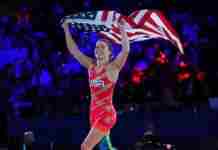
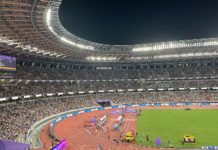
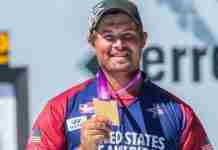



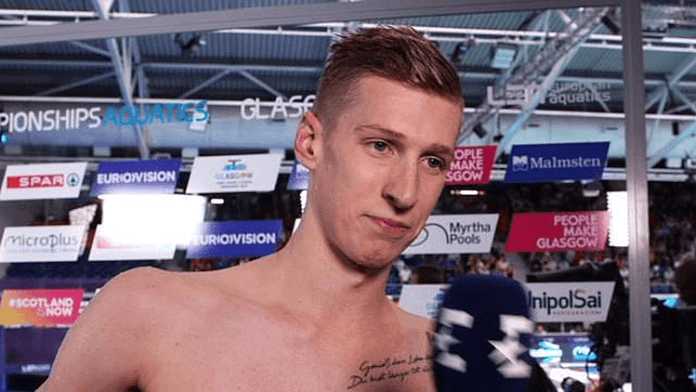

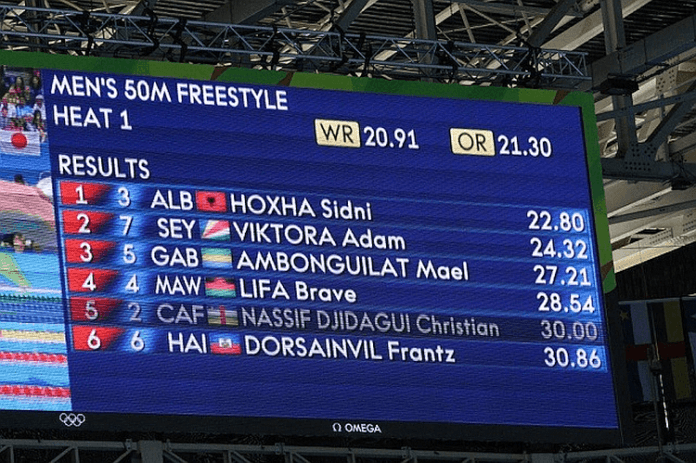
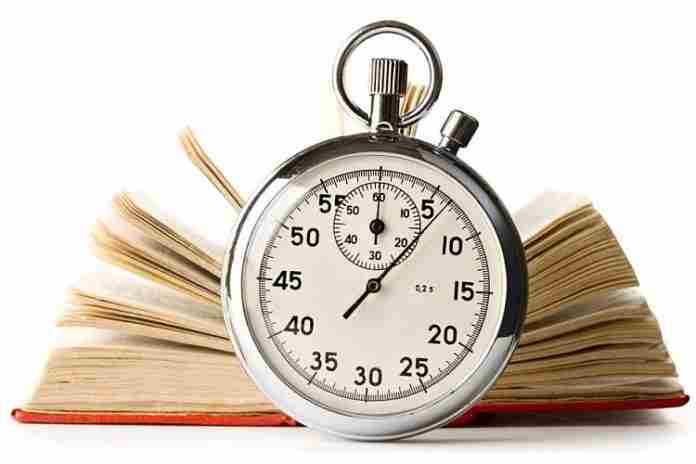
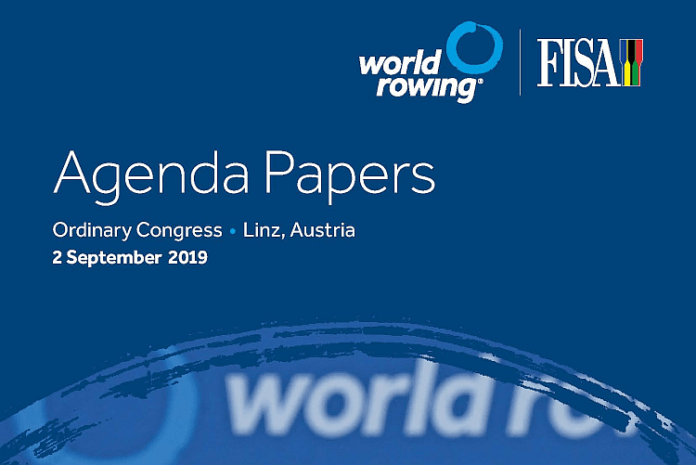
 There has been much made of the lack of transparency, not to mention outright secrecy or deceit within the International Federations which govern sports worldwide in the Olympic Movement. And for good reason.
There has been much made of the lack of transparency, not to mention outright secrecy or deceit within the International Federations which govern sports worldwide in the Olympic Movement. And for good reason.